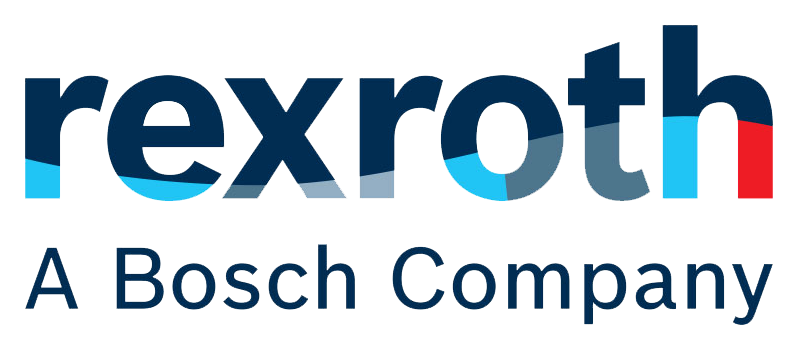PhD International Intensive School seeks to explore the latest advances and cutting-edge research in the field, providing a unique platform for knowledge exchange and the cultivation of academic excellence. Renowned luminaries in their respective fields will grace our sessions, delivering lectures and insights honed from years of scholarly dedication and expertise.
PhD students enrolled in a doctoral degree program for the academic years 2023-2027 in the fields of sustainable and smart mobility and alternative fuels, as well as from cross-disciplinary fields and energy-related disciplines such as advanced energy technologies, sustainable measures and policies, energy economics, modelling and optimization of energy systems, machine learning techniques and artificial intelligence for energy management, are eligible to apply for PhD School.
Throughout the course, participants can expect to engage in dynamic lectures, thought-provoking discussions and collaborative workshops designed to foster critical thinking and innovative problem-solving skills. In addition, the serene setting of Naples' city centre will provide an inspiring atmosphere conducive to deep learning and scholarly discourse.
Invited Speakers
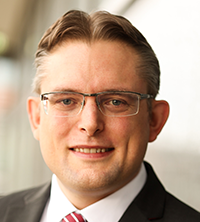

PhD at Helmut-Schmidt-Universität/Universität der Bundeswehr, Hamburg
Research associate at Helmholtz-Zentrum Hereon, Geesthacht
Research associate at the DLR Institute of German Aerospace Center in Kiel
Title of the course
Hydrogen Economy – Production, Usage, Storage, and Distribution
Topic
Hydrogen Economy – Production and Usage: The lecture give an overview of the hydrogen economy. This includes different production pathways and production scenario. Considering that the different possible and already existing usage option will be described. Also the amounts of hydrogen for different fields of usage will be explained.
Hydrogen Storage & Distribution: The different options of hydrogen storages are explained and also some usage example are given. Additionally the different ways of hydrogen distribution are explained.

PhD at Helmut-Schmidt-Universität/Universität der Bundeswehr, Hamburg
Research associate at Helmholtz-Zentrum Hereon, Geesthacht
Research associate at the DLR Institute of German Aerospace Center in Kiel
Title of the course
Hydrogen Economy – Production, Usage, Storage, and Distribution
Topic
Hydrogen Economy – Production and Usage: The lecture give an overview of the hydrogen economy. This includes different production pathways and production scenario. Considering that the different possible and already existing usage option will be described. Also the amounts of hydrogen for different fields of usage will be explained.
Hydrogen Storage & Distribution: The different options of hydrogen storages are explained and also some usage example are given. Additionally the different ways of hydrogen distribution are explained.
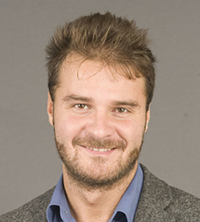

PhD in Mechanical Engineering from University of Cambridge
Lecturer in Thermofluids science and Engineering at Loughborough University
Associate Professor in Sustainable Aircraft Propulsion at the faculty of Aerospace Engineering at TU Delft
Title of the course
Hydrogen flame technology for sustainable combustion
Topic
The lectures aim at providing an understanding of the peculiar physics of hydrogen flames and their implication for the development of combustion chambers in modern engines. After an introduction on the fundamentals of premixed and non-premixed flames, hydrogen combustion will be discussed, in particular the implication of hydrogen’s high diffusivity and its coupling with stretch on flame structure and flame dynamics. In the second part, state-of-the-art architectures and hydrogen-enabling ultra-low emissions concepts, along with their challenges, will be discussed.
The lectures will end with the setup of a CFD exercise for a model gas turbine combustion chamber.

PhD in Mechanical Engineering from University of Cambridge
Lecturer in Thermofluids science and Engineering at Loughborough University
Associate Professor in Sustainable Aircraft Propulsion at the faculty of Aerospace Engineering at TU Delft
Title of the course
Hydrogen flame technology for sustainable combustion
Topic
The lectures aim at providing an understanding of the peculiar physics of hydrogen flames and their implication for the development of combustion chambers in modern engines. After an introduction on the fundamentals of premixed and non-premixed flames, hydrogen combustion will be discussed, in particular the implication of hydrogen’s high diffusivity and its coupling with stretch on flame structure and flame dynamics. In the second part, state-of-the-art architectures and hydrogen-enabling ultra-low emissions concepts, along with their challenges, will be discussed.
The lectures will end with the setup of a CFD exercise for a model gas turbine combustion chamber.
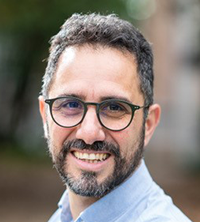

PhD at the University of Pisa in collaboration with the University of Utah
Assistant Professor at the Aero-Thermo-Mechanical Department of Université Libre de Bruxelles
Leads the Brussels Institute for Thermal Fluid Systems and Clean Energy (BRITE)
Title of the course
Data-driven Modeling of Reacting Flows
Topic
The lecture presentation delves into the application of machine learning for understanding and modeling turbulent reactive flows. It begins by tracing the evolution of scientific paradigms, from traditional experimental methods to the modern, data-intensive approach that seamlessly combines theory, experiments, and simulations. A central focus is on the significant challenges in this field, including the vast differences in chemical and fluid dynamics time scales and the high dimensionality of chemical reactions. To tackle these challenges, the lectures highlight dimensionality reduction techniques, particularly Principal Component Analysis (PCA), which simplifies complex data while preserving essential information. The presentation also explores advanced, non-linear methods like Kernel PCA and Autoencoders, as well as a hybrid approach called Local PCA, which is effective for complex, non-linear data. These techniques are shown to enable the creation of powerful tools for combustion systems. The lecture introduces reduced-order models and digital twins, which can be used to analyze and enhance the performance of industrial-like systems. The presentation concludes by outlining methods to continuously update these models with new experimental data, establishing a continuous, lifelong-learning framework

PhD at the University of Pisa in collaboration with the University of Utah
Assistant Professor at the Aero-Thermo-Mechanical Department of Université Libre de Bruxelles
Leads the Brussels Institute for Thermal Fluid Systems and Clean Energy (BRITE)
Title of the course
Data-driven Modeling of Reacting Flows
Topic
The lecture presentation delves into the application of machine learning for understanding and modeling turbulent reactive flows. It begins by tracing the evolution of scientific paradigms, from traditional experimental methods to the modern, data-intensive approach that seamlessly combines theory, experiments, and simulations. A central focus is on the significant challenges in this field, including the vast differences in chemical and fluid dynamics time scales and the high dimensionality of chemical reactions. To tackle these challenges, the lectures highlight dimensionality reduction techniques, particularly Principal Component Analysis (PCA), which simplifies complex data while preserving essential information. The presentation also explores advanced, non-linear methods like Kernel PCA and Autoencoders, as well as a hybrid approach called Local PCA, which is effective for complex, non-linear data. These techniques are shown to enable the creation of powerful tools for combustion systems. The lecture introduces reduced-order models and digital twins, which can be used to analyze and enhance the performance of industrial-like systems. The presentation concludes by outlining methods to continuously update these models with new experimental data, establishing a continuous, lifelong-learning framework
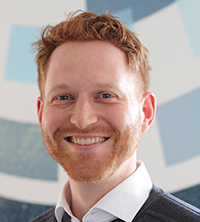

Degree: University of Technology: RWTH Aachen, Germany: "Business Administration and Mechanical Engineering (M.Sc.)"
Office Executive for CEO Bosch Rexroth and Sales Engineer Hydrogen Applications
Title of the Seminar
Bosch-Rexroth Hydrogen Scenario
Topic
To be defined

Degree: University of Technology: RWTH Aachen, Germany: "Business Administration and Mechanical Engineering (M.Sc.)"
Office Executive for CEO Bosch Rexroth and Sales Engineer Hydrogen Applications
Title of the Seminar
Bosch-Rexroth Hydrogen Scenario
Topic
To be defined





